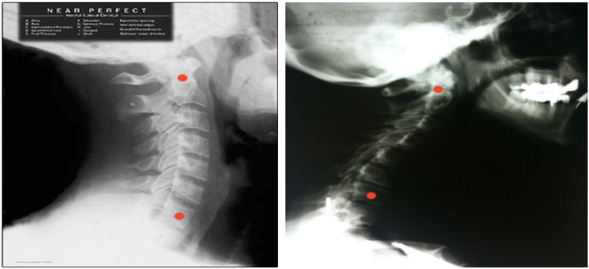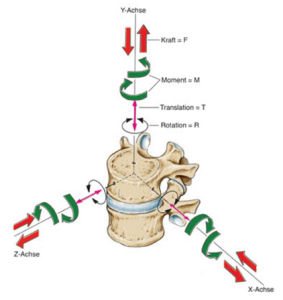One complaint I hear and overhear all the time is neck stiffness that won’t go away no matter how much you stretch. I’m convinced ⅔ of Portland has a stiff neck. Not so much pain (unless you turn it a little too far) but just an annoying stiffness that feels like your neck needs some oil or something.
A LOT of things can cause a stiff neck. Immediate events like a minor strain/sprain from something you did yesterday or the funny way you slept last night can cause it. Serious conditions like a herniated cervical disc, damaged ligaments/tendons (whiplash), and nerve entrapments can cause it too. This blog isn’t for the neck stiffness that comes from an event. This blog is to answer the question, “why is my neck always stiff? I didn’t do anything and even though stretching and massage feels good at the time, nothing seems to help long term?”
If you’ve been following my blogs, you’ll recognize my approach to the human body in this explanation. The body is reactionary – it is the way it is for a reason. If your neck is always stiff and the cause was from tight muscles, then massage and stretches would fix it. They would be a long term solution. But if addressing those tissues isn’t fixing the problem, then perhaps the tight muscles are just a symptom of another cause that you’re not addressing. Why would neck muscles always be tight? Here are three reasons that – when addressed – free up a stiff neck more times than not for a lot longer than a typical steam and cream treatment.
1 – Your Upper Back is too Stiff
Think of your body like a series of cogs, pulleys, and levers. Your elbow doesn’t work alone, it works with the wrist and shoulder. The knee takes direction from the ankle and orders from the hip. What’s the point? It’s all interrelated and if one section isn’t working right, the other neighboring sections need to change how they behave to keep the system functioning.
To boil it down, some joints are made for mobility and others for stability – this is what allows people to move and run and jump. Your shoulder joint is made for mobility. If it becomes stiff, its neighboring joints, the elbow and scapulothoracic joint (made for stability) have to move a little more than they should. This altered motor control can lead to pain and injury.
So – back to your neck. Your upper back is made for mobility and your mid to low neck is made for stability. If your upper back isn’t mobile, your neck needs to move more than it should during everyday life. But there’s a lot of important stuff around your neck and your body is very good at protecting important structures so as a result to this increased biomechanical demand for mobility, your brain tightens up the neck musculature to prevent any possible damage. I see this scenario a lot in people that sit for most of their day (looking at you, Portland coffee shop “writer”) and in swimmers, pitchers, and golfers.
2 – Your Head is Too Heavy
 Not really. Your head is just the weight is needs to be but the distribution of that weight may be a little off. Have someone take a picture of your from the side, is your ear in line with your shoulder? In other words, is your posture good? In a lot of people – mostly students and people that sit over a screen all day – the head can creep forward. Slouching over books or a computer all day causes the shoulders to roll forward putting a little bend in your upper back at the base of your neck. If your neck followed with the back, you’d be looking at your keyboard or lap – not your monitor, so your upper neck extends back a little to keep you looking forward.
Not really. Your head is just the weight is needs to be but the distribution of that weight may be a little off. Have someone take a picture of your from the side, is your ear in line with your shoulder? In other words, is your posture good? In a lot of people – mostly students and people that sit over a screen all day – the head can creep forward. Slouching over books or a computer all day causes the shoulders to roll forward putting a little bend in your upper back at the base of your neck. If your neck followed with the back, you’d be looking at your keyboard or lap – not your monitor, so your upper neck extends back a little to keep you looking forward.
What does this end up doing? The average head weighs about 11 pounds. The body is made to carry that 11 pounds on top of our shoulders through a normal cervical curve. Putting the weight of your head forward increases the demand on the support system. Essentially, it’s as if your head now weighs 42 pounds! Think about holding a bowling ball. With your elbow bent and the ball close to your body, it doesn’t really feel heavy. Now straighten your arm and hold the ball away from your body – it will feel heavier, won’t it? -Same principle. To make up for the “increased weight”, your joints lock and your muscles stiffen up. In the long term, this can cause some pretty noticeable changes on x-ray and can really speed up the rate of spinal degeneration / joint disease.

3 – A Joint Isn’t Moving Right
 Sometimes if the feeling of stiffness is local to one particular spot, it may be that a particular cervical joint has decreased its segmental range of motion and is just blocked or feeling like it is getting caught or stuck. Often the quickest and best fix is an adjustment to restore that joint’s segmental motion.
Sometimes if the feeling of stiffness is local to one particular spot, it may be that a particular cervical joint has decreased its segmental range of motion and is just blocked or feeling like it is getting caught or stuck. Often the quickest and best fix is an adjustment to restore that joint’s segmental motion.
Obviously, these are just a few examples of the many, many things that can cause a stiff neck. Most of the time, the cause is self limiting and not serious but given that it is the neck, it’s worth having checked out and assessed by a professional. If you’ve been dealing with a stiff neck for a while and would like to get it better, consider making an appointment.
I hope you’ve found this blog useful. As always, feel free to write in with questions and comments or drop me a line on Facebook.
Until next time, eat well and move often!
Questions about this post?
Dr. Lell would be happy to answer questions or provide more information discussed in this blog post. Contact him through our Contact Page.
Photocredits:
jpilatesblog.wordpress.com
drtanase.com
harms-spinesurgery.com
